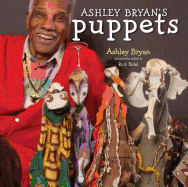 Tina Gilbertson is a mental-health counselor in private practice in Portland, Ore. She teaches assertiveness and self-esteem workshops as well as classes on goal-setting, decision-making, overcoming anxiety and finding the right career. Constructive Wallowing: How to Beat Bad Feelings by Letting Yourself Have Them (Viva Editions, May 13, 2014) is about how to master anger, resentment and other hard feelings by moving toward instead of away from them.
Tina Gilbertson is a mental-health counselor in private practice in Portland, Ore. She teaches assertiveness and self-esteem workshops as well as classes on goal-setting, decision-making, overcoming anxiety and finding the right career. Constructive Wallowing: How to Beat Bad Feelings by Letting Yourself Have Them (Viva Editions, May 13, 2014) is about how to master anger, resentment and other hard feelings by moving toward instead of away from them.
On your nightstand now:
I'm usually the last person I know to read any given bestseller. Eventually I do like to find out what the hoopla was about, but I do it long after everyone else has moved on and all the library copies are back on the shelves. Right now I'm working my way through A Game of Thrones by George R.R. Martin. My favorite character is Arya Stark, Ned's youngest daughter. She's a little girl in a world owned by men--and not just ordinary men, but brutes who'd sooner take a life than a bath. She knows who she is, and against the odds she wants to take control of her own destiny. I'm also reading Gone Girl by Gillian Flynn--a departure from my usual fare, but I'm finding it addictive. All the other reading material on my nightstand, apart from the three physics tomes that belong to my partner and hold up my lamp, is nonfiction related to my profession.
Favorite book when you were a child:
That's easy. Richard Scarry's Busy, Busy World was a constant draw throughout my childhood. I loved the color and bustle in the illustrations and the fact that all the characters were animals. Very occasionally I'd spot a detail in the artwork that I hadn't seen before, like a ladybug hurrying away from the scene of a crash (to make up an example). It was endlessly entertaining. I loved it so much I snuck it to school with me one day and got in trouble for reading it in class. College professors can be so bossy!
Your top five authors:
As a psychotherapist, I'm exposed every day to real-life stories that are epic, dramatic and tragic, so when I'm reading for pleasure, I gravitate toward the pure entertainment of thrillers. I regret that I seem to spend the majority of my life sitting in a chair; I'm an adventurer at heart. For years, my go-to authors have been Ken Follett, Lee Child and Dean Koontz because of their masterful storytelling and vital characters. Recently, Michael Palmer's The First Patient and Tess Gerritsen's Ice Cold introduced me to the world of medical thrillers, which I've discovered I have an appetite for. It's great fun to have a new interest to explore. This one's not surprising, given my interest in physical as well as mental health.
Book you've faked reading:
I might have skipped over a few lines--like, four out of every five--in Joseph Conrad's Heart of Darkness when I tried to read it in my 20s. At the time, I was on a mission to read every book I could get my hands on that was considered a classic, and I did pretty well. I bought most of the books from garage sales and amassed quite a collection, which I schlepped with me every time I moved. I couldn't quite muster the will to slog through to the end with Conrad, but to my pleasant surprise I did sail through William Thackeray's Vanity Fair.
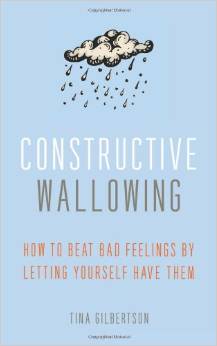 Book you're an evangelist for:
Book you're an evangelist for:
I'm not a parent myself, but as a therapist I applaud Heather Shumaker for her counterintuitive guide It's OK Not to Share and Other Renegade Rules for Raising Competent and Compassionate Kids. I love the way she helps parents deal with their children's emotions with this pithy motto: "All feelings are okay. All behavior isn't." It's a useful lesson for kids and a good reminder for adults.
Book you've bought for the cover:
You Are Worthless: Depressing Nuggets of Wisdom Sure to Ruin Your Day by Scott Dikkers of the Onion. From a distance it looks like a feel-good self-help book, pale yellow with a script font and a photograph of flowers in soft focus. But when you get closer you realize it's an outrageous parody, a collection of negative affirmations like "Don't try anything bold or innovative. It will never work," and "Your kids are ugly." It never ceases to intrigue and amuse guests who spot it on the bookshelves in our living room.
Book that changed your life:
Emotional Resilience by David Viscott was an early inspiration. I think it was Viscott who first convinced me that feelings don't go away just because we try not to think about them. Also, come to think of it, Richard Scarry's Busy, Busy World had a lasting impact. Whenever I get into a taxi in another country, I check to see if the driver is an animal.
Favorite line from a book:
"You have been taught that there is something wrong with you and that you are imperfect, but there isn't and you're not." It's the first line of There Is Nothing Wrong with You by Cheri Huber. I think this is one of the most healing messages for our time. I keep Huber's book on the bookshelves in my office with the spine visible to clients when they sit down for therapy. In everything I say, teach and write, I want to convey this: "Yes, it's true that you don't get everything right all the time, but it's not because you're inherently flawed as a person." Baseless shame is the scourge of society.
Character you most relate to:
I feel a bond with my alter ego, Jack Reacher, created by Lee Child. He's resourceful, principled, doesn't back away from a fight and likes his own company but still manages to read people well and enjoy close relationships (if only for a short time). He's the perfect complement to my actual bumbling, squeamish, needy self. Together we make one well-rounded, interesting person.
Book you most want to read again for the first time:
I had an unusually good time reading Whiteout by Ken Follett. For some reason, I'm drawn to stories that include potential deadly virus outbreaks--possibly because they usually have a happy ending, and that's important to me when reading for pleasure. The story takes place during a snowstorm and I read it during a snowstorm, which cast a kind of spell on me. Snuggled up with a cup of tea by the fire, I got to experience the adventure while staying safe and warm.
Book you've bought for the title:
Do What You Love, The Money Will Follow by Marsha Sinetar. Regardless of whether it's true, I've always found that message irresistible. Also, Daniel Goleman had me at Emotional Intelligence and Elio Frattaroli's Healing the Soul in the Age of the Brain was like catnip when I saw it. The latter is a wonderful book that's particularly timely because of the escalating medicalization of emotions like sadness and anger. Normal emotional responses to difficult life events are too often treated with drugs instead of compassion, rest and time. I find it depressing--and not because I have a chemical imbalance in my brain!
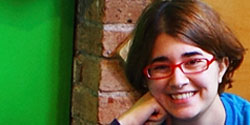 "The independent booksellers that survived the past decade realized that to make it, they must be tirelessly innovating, constantly engaging their communities and building their clientele, and offering an experience and expertise that cannot be found anywhere else. They've passed this knowledge down to the newest generations of booksellers, which has made the current independent bookselling community more engaged and vibrant than ever before....
"The independent booksellers that survived the past decade realized that to make it, they must be tirelessly innovating, constantly engaging their communities and building their clientele, and offering an experience and expertise that cannot be found anywhere else. They've passed this knowledge down to the newest generations of booksellers, which has made the current independent bookselling community more engaged and vibrant than ever before.... 









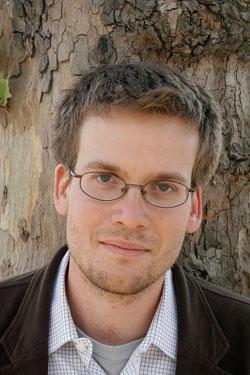 John Green, whose publisher is Penguin Random House, has joined the chorus of authors protesting Amazon's treatment of Hachette Group. A frequent critic of bullying, he told the AP: "
John Green, whose publisher is Penguin Random House, has joined the chorus of authors protesting Amazon's treatment of Hachette Group. A frequent critic of bullying, he told the AP: "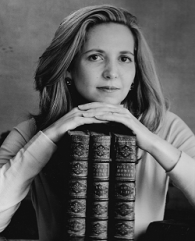 "What the public does not know is that the real fight is about kickbacks. How can Amazon make up for the fact that it sells almost all its books at a loss?
"What the public does not know is that the real fight is about kickbacks. How can Amazon make up for the fact that it sells almost all its books at a loss? A New York Times editorial
A New York Times editorial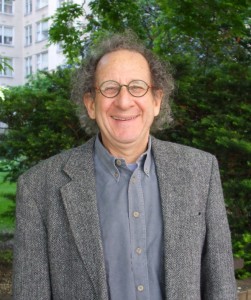 On his Idealog blog, Mike Shatzkin offered some background to the battle over e-book pricing and explored "
On his Idealog blog, Mike Shatzkin offered some background to the battle over e-book pricing and explored "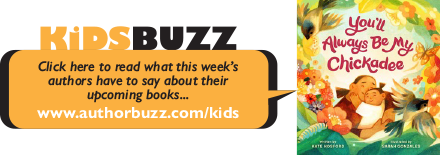
 Noting that it "has weathered many changes, including changes in our industry, the economy and in our physical locations,"
Noting that it "has weathered many changes, including changes in our industry, the economy and in our physical locations," 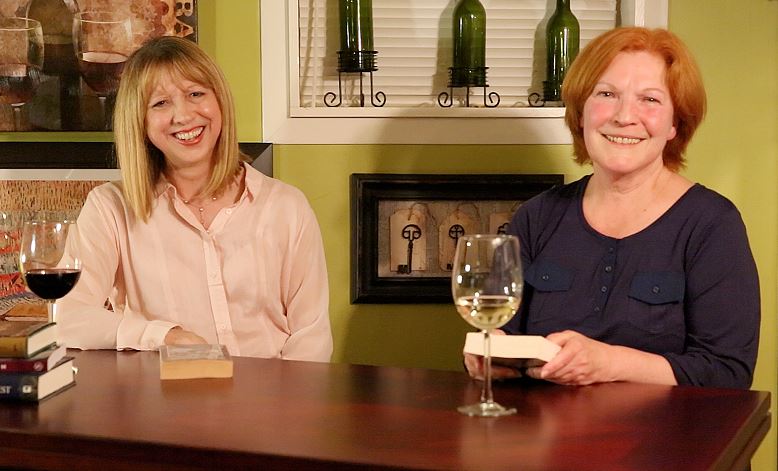 Hoenig and Zieran have known each other since 1994, and they've talked about opening an independent bookstore for ages. For a time, it seemed an impossible dream to them--if a chain like Borders couldn't survive, how could just two women with a small bookshop make it? But in recent years they started reading about indies making a strong comeback, the apparent leveling-out of the e-book market, and Hoenig had a very encouraging author event at an indie after the publication of her second book.
Hoenig and Zieran have known each other since 1994, and they've talked about opening an independent bookstore for ages. For a time, it seemed an impossible dream to them--if a chain like Borders couldn't survive, how could just two women with a small bookshop make it? But in recent years they started reading about indies making a strong comeback, the apparent leveling-out of the e-book market, and Hoenig had a very encouraging author event at an indie after the publication of her second book.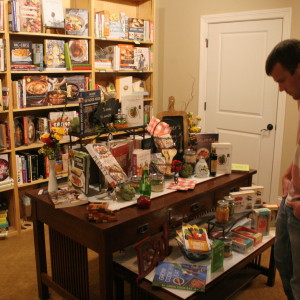
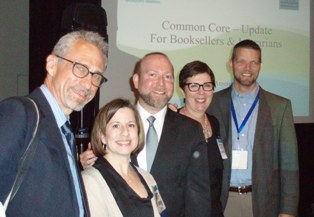
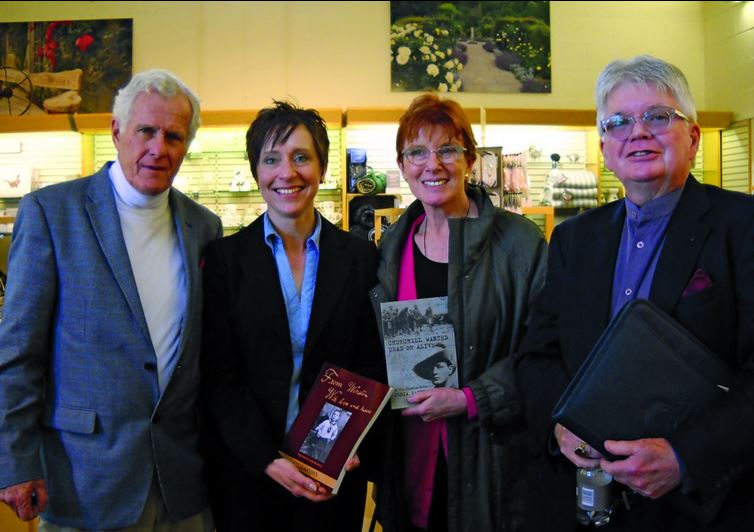 As part of a promotional tour of all the major Churchill sites in England, author Celia Sandys (second from right), granddaughter of Winston Churchill, is pictured in the book and gift shop of Chartwell, Churchill's former family home, with two of her books that were recently republished by Texas A&M University Press. With her are (l.-r.) Davis Ford, past chairman of the press's Advancement Board, Chartwell's retail manager Nicola Watson and Charles Backus, press director.
As part of a promotional tour of all the major Churchill sites in England, author Celia Sandys (second from right), granddaughter of Winston Churchill, is pictured in the book and gift shop of Chartwell, Churchill's former family home, with two of her books that were recently republished by Texas A&M University Press. With her are (l.-r.) Davis Ford, past chairman of the press's Advancement Board, Chartwell's retail manager Nicola Watson and Charles Backus, press director. Stefani Beddingfield, who purchased
Stefani Beddingfield, who purchased  Third Rail
Third Rail
 Book you're an evangelist for:
Book you're an evangelist for: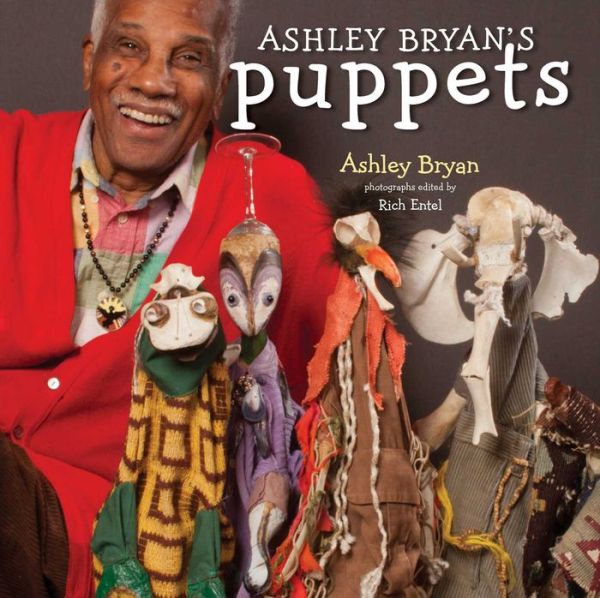 This beautifully designed picture book opens a window into how author-artist and craftsman Ashley Bryan (Can't Scare Me!) resuscitates found objects as expressive puppets.
This beautifully designed picture book opens a window into how author-artist and craftsman Ashley Bryan (Can't Scare Me!) resuscitates found objects as expressive puppets. 